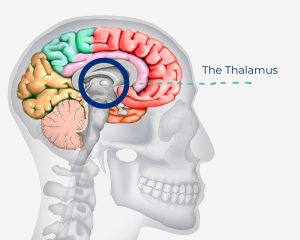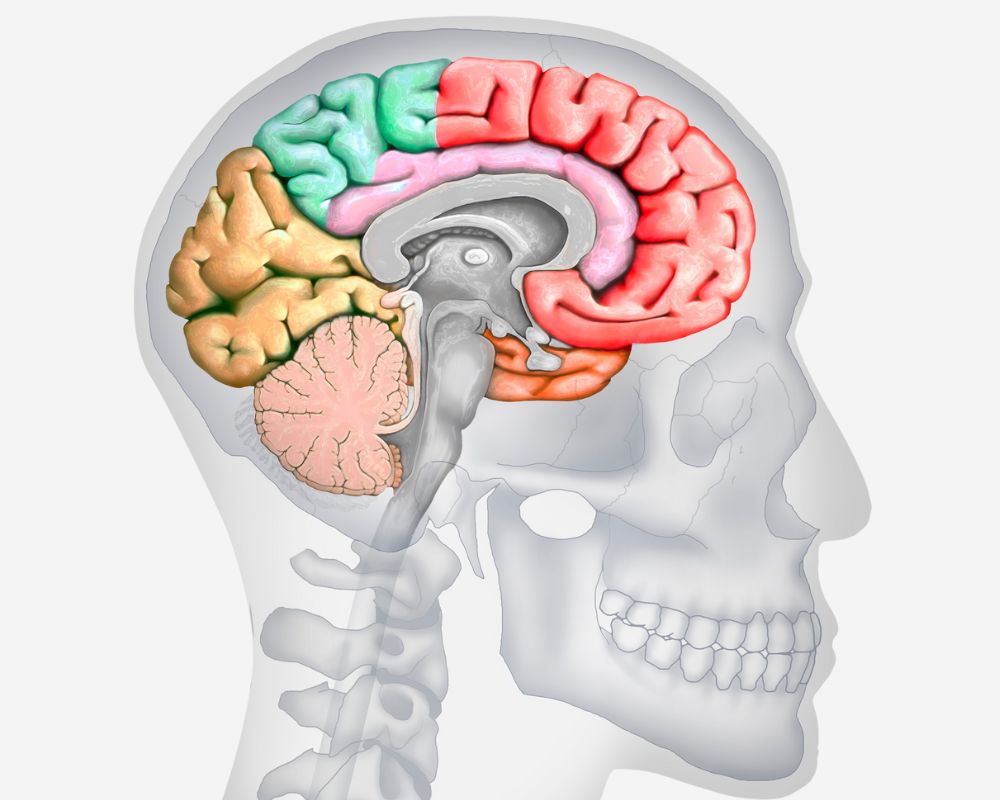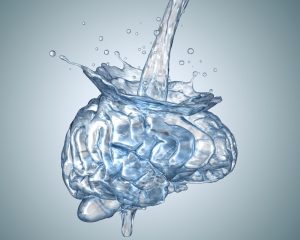Opened in 1885, Tokyo’s Shinjuku Station is recognised as the world’s busiest train station serving an average of 3.5 million passengers each day. That’s a staggering number of people boarding trains, changing trains or arriving at their destination and heading into the city. It’s a complex network involving numerous train routes, platforms and information displays as well as 200 exits.
It’s almost as impressive as your thalamus!
What is the thalamus?
Deep in your brain sits an egg-shaped structure – the thalamus – that acts like a relay station for your brain. Every single motor signal in your body passes through your thalamus as does information from each of your senses except for smell.
Thalamus function
The thalamus’s main job is to send motor and sensory signals to your cerebral cortex, which aids with thought, perception, language, memory, attention, consciousness, and advanced motor functions.
Your thalamus has specialised areas known as nuclei. Your body sends sensory or motor information to your thalamus, the nuclei process it and relay it along nerve fibres to the right area of your cerebral cortex for interpretation. 
It’s thought that different nuclei process information relating to:
- memory
- emotions
- behaviour regulation
- organisation
- planning
- higher-order thinking
- pain
- temperature
- touch
- movement
- sights and sounds.
Let’s take sound. When you hear something, the sound goes on a high-speed journey through your ear canal, to the auditory nerve and into different regions of your brain. The temporal lobe is an area of the brain that helps you use your senses and understand the world around you. It sends auditory information to your thalamus, which sends it to your frontal lobe for further processing.
A similar process happens with movement. Your thalamus receives information about body movements from one area of your brain and then sends it to targeted muscles to control your movements.
Your thalamus also plays a role in processing your emotions. The thalamus receives information from your amygdala (the brain region responsible for most emotional processing). It sends those emotional messages to the prefrontal cortex, a key brain area that helps you manage your feelings and determine your actions.
Which conditions or disorders involve the thalamus?
Your thalamus may be damaged by:
- stroke
- tumour
- certain health conditions.
A damaged thalamus can affect many areas of your life. It causes sensory problems and can also affect cognition and behaviour.
Damage to your thalamus may lead to:
- thalamic aphasia – jumbling up your words so that your speech becomes meaningless
- thalamic pain syndrome – tingling or burning pain
- sleep disorders (including fatal familial insomnia)
- vision difficulties such as vision loss or light sensitivity
- chronic pain
- tremors and other movement disorders.
Treatment for a damaged thalamus aims to help you recovery lost skills, as far as may be possible. Your brain is amazingly adaptable and can retrain itself with the right input.
Treatment may include:
- a range of exercises that target your senses
- physiotherapy to improve motor control
- deep brain stimulation, a surgical procedure where sensors are implanted into your brain and send high-frequency impulses to the thalamus, helping to manage tremors.
How can we help?
Macquarie Neurosurgery & Spine’s highly trained and experienced specialists are recognised as world leaders in the treatment of spinal and brain conditions.
If you have any concerns about your neurological health, please contact us or ask your GP for a referral to Macquarie Neurosurgery and Spine.
Disclaimer
All information is general and is not intended to be a substitute for professional medical advice. Macquarie Neurosurgery and Spine can consult with you to confirm if a particular treatment or procedure is right for you. Any surgical or invasive procedure carries risks. A second opinion may help you decide if a particular treatment is right for you.
References
- Cleveland Clinic, Thalamus, https://my.clevelandclinic.org/health/body/22652-thalamus#, [Accessed 5 April 2024]
- Simply Psychology, What is the cerebral cortex, https://www.simplypsychology.org/what-is-the-cerebral-cortex.html, [Accessed 5 April 2024]
- American Association of Neurological Surgeons, Deep brain stimulation, https://www.aans.org/en/Patients/Neurosurgical-Conditions-and-Treatments/Deep-Brain-Stimulation, [Accessed 5 April 2024]






